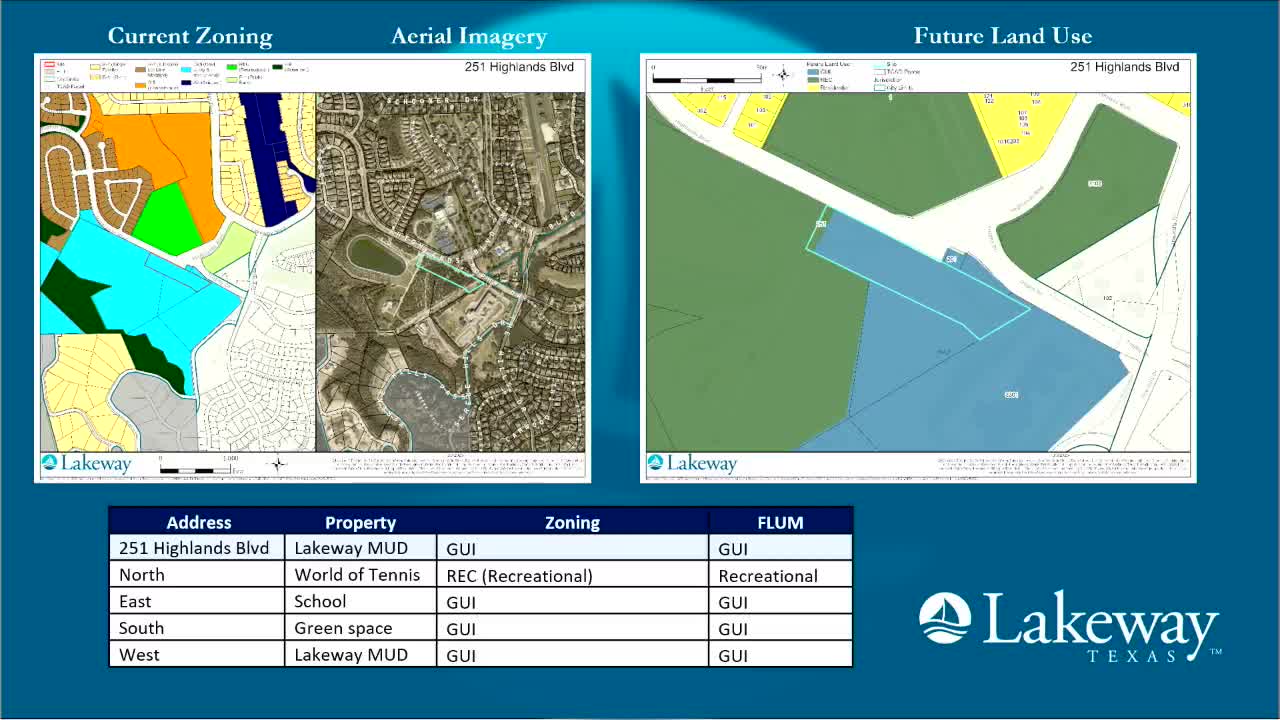Council approves special-use permit for 175-foot cell tower at Highlands Boulevard after split vote
Get AI-powered insights, summaries, and transcripts
Subscribe
Summary
After extensive public comment and technical presentation from carriers, the council approved a special-use permit for a 175-foot monopole cell tower on MUD-owned land near Highlands Boulevard. The decision drew a 4-3 vote; ZAPCO had recommended approval for a 15-year permit but the applicants stated carriers prefer a longer lease term.
The Lakeway City Council approved a special-use permit for a proposed 175-foot communications monopole on land owned by the Lakeway Municipal Utility District near Highlands Boulevard, voting 4-3 after more than an hour of public testimony.
City staff and the applicant described the site as chosen to fill coverage and capacity gaps in Lakeway's interior where terrain and foliage limit small cell solutions. Presentations from KGI Wireless, AT&T and one of the applicant's consultants explained that a macro monopole is needed to provide in-building and in-vehicle coverage in the affected neighborhoods and to support FirstNet capacity for first responders.
Zoning and Planning Commission had recommended approval with a 15-year permit term; during council discussion an amendment to set the permit term at 15 years was proposed but the applicant and carrier representatives said many carriers will not colocate for such a short lease and that a longer term (30—340 years) is typically necessary to justify investment. The final motion passed 4-3; the final permit length was not unambiguously recorded in the motion on the public transcript. Councilmembers who opposed the permit cited proximity to residences, school and parkland and urged further effort to identify less intrusive alternatives.
Public comment in chambers was heavily divided. Residents whose homes back onto Highlands Boulevard and the City Park voiced concerns about viewshed, property values, perceived health risks and possible lighting impacts. Supporters, including nearby property owners and some local businesspeople, said the tower will remedy documented coverage problems, improve 9-1-1 location accuracy and support public-safety communications. Applicants said the FAA would determine lighting requirements and that typical monopoles under 199 feet are not likely to require obstruction lighting, but they noted FAA review is required.
The city will issue an SUP to allow the monopole on the MUD parcel subject to the conditions in the permit and standard FCC/FAA compliance checks; carriers will still require building and collocation permits and must demonstrate compliance with FCC RF-exposure standards before equipment goes on air.
